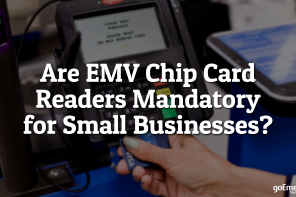A new survey from The Strawhecker Group (TSG) reveals businesses are proceeding slower than expected in their adoption of EMV technology. The U.S. is one of the few industrialized nations that have not fully transitioned to this technology standard. TSG is a leading management consulting firm associated with the global payments industry.
EMV is the globally accepted credit and debit card standard based on microchip technology, named after the joint efforts of Europay, MasterCard® and Visa®. This group’s united purpose began over two decades ago. Its mission is to facilitate EMV’s worldwide interoperability and acceptance for more secure payment transactions.
Globally, credit card issuers are including microchips in bank cards and merchants are moving to EMV-compliant terminals to increase security and reduce card-present fraud resulting from counterfeit, lost, and stolen cards. EMV card technology effectively combats counterfeit fraud using its dynamic authentication capabilities — the dynamic values existing within the chip itself that, when verified by the point-of-sale device, ensure the authenticity of the card.
The latest TSG survey reveals U.S. businesses have fallen behind schedule with only 37 percent currently able to accept chip cards. Results of a previous TSG survey supported expectations for 44 percent of businesses to be ready to process EMV payments by October 1, 2016. This date marks a payments milestone known as the EMV Liability Shift. For fuel dispensers the liability shift will not occur until 2017 due to the greater degree of difficulty and higher cost of transitioning equipment to EMV-capable devices.
As of this date, the burden of liability for fraudulent counterfeit card transactions shifted to a greater extent from banks to merchants. Now when credit card fraud takes place, liability for the costs will fall on the merchants using non-EMV-compatible technology. So in other words, if the merchant has EMV-ready technology but the bank hasn’t issued the customer a chip card, the bank is liable. Under the shift, credit card processors will be responsible for fraud losses that occur as a result of a cardholder being forced to pay using a traditional magnetic stripe card instead of a smart card due to a business not having an EMV-ready device; however these losses will ultimately be passed on from the processor to the merchant.
TSG suspects the holiday shopping season may have been somewhat responsible for the EMV adoption slowdown. Cautious merchants were hesitant to utilize new technology that could potentially cause some confusion and negatively impact sales. Additionally, many small-to-mid-sized businesses that have purchased and installed new EMV-capable machines have been held up by a backlog to have the terminals programmed and tested so that they can be used.
Regardless of delays, The Strawhecker Group survey anticipates roughly 72% of all merchants will be ready to process chip cards by the end of 2016.




